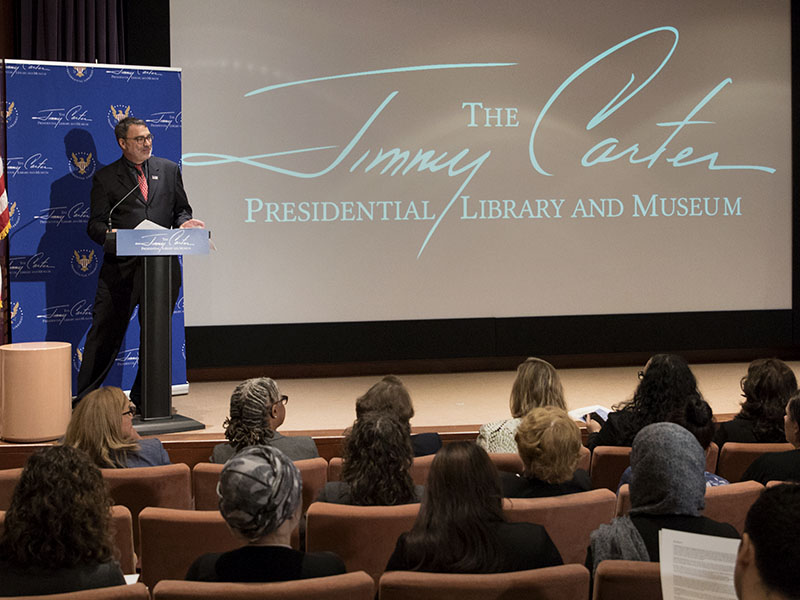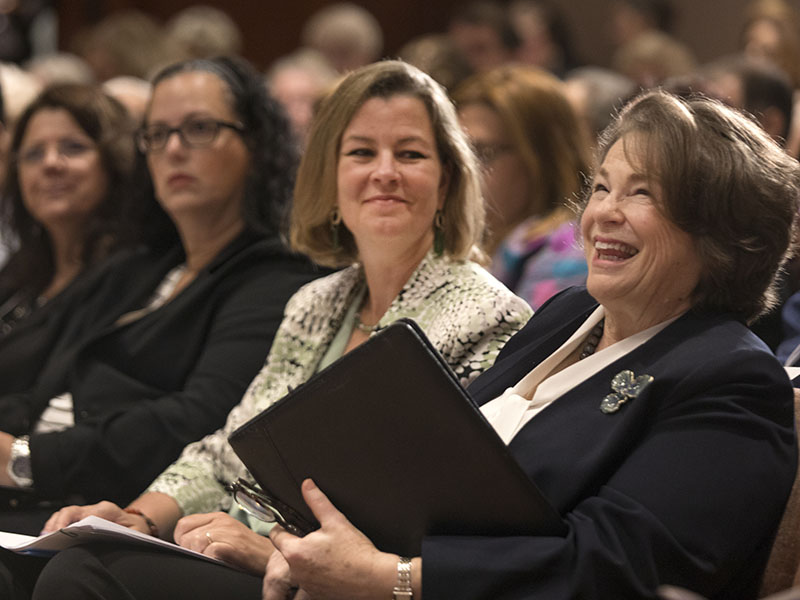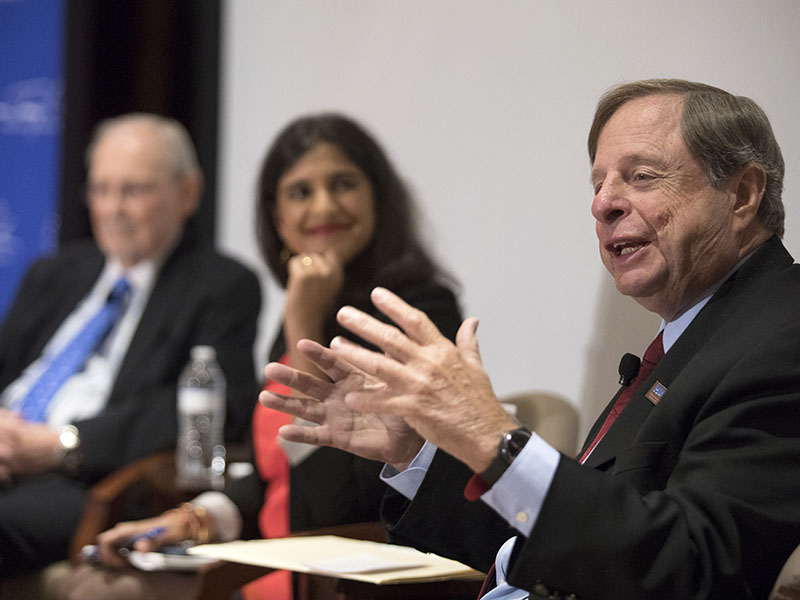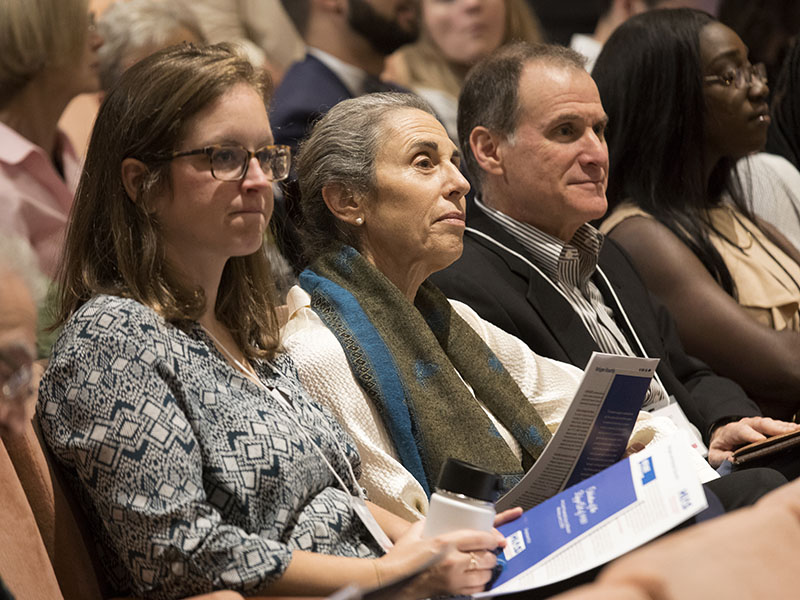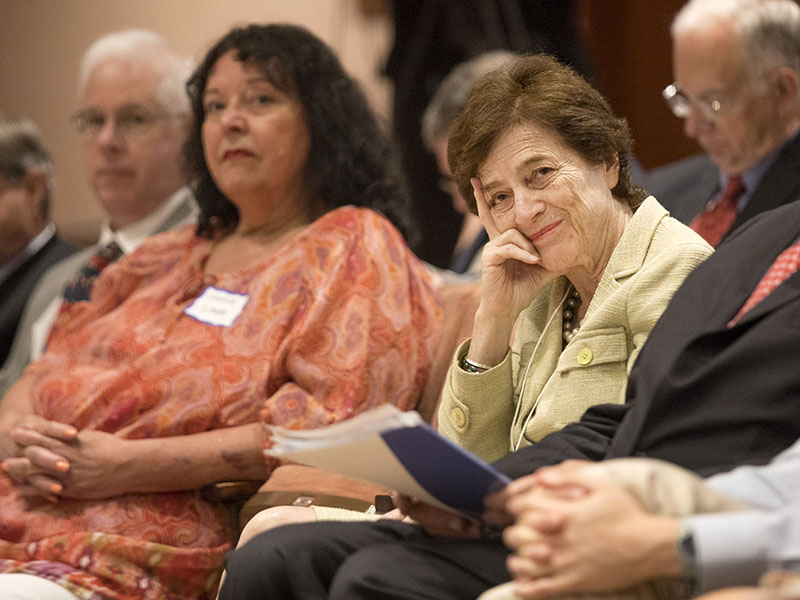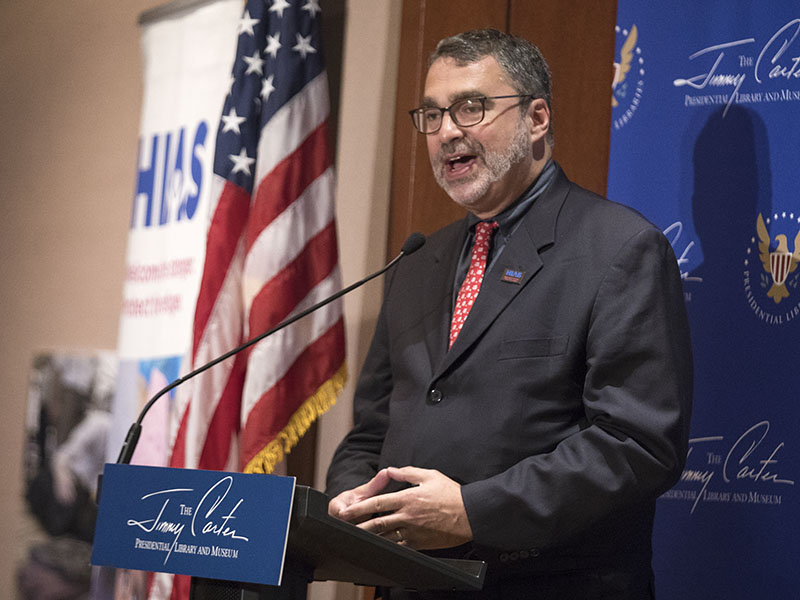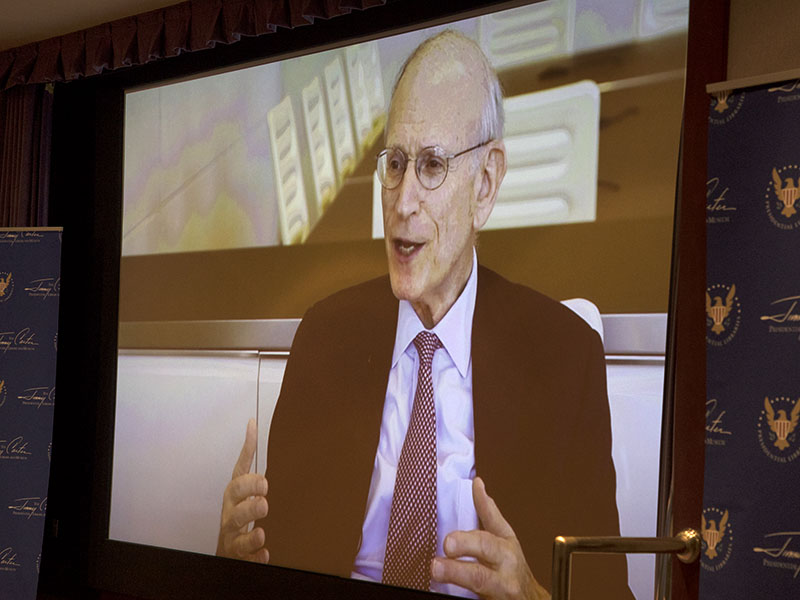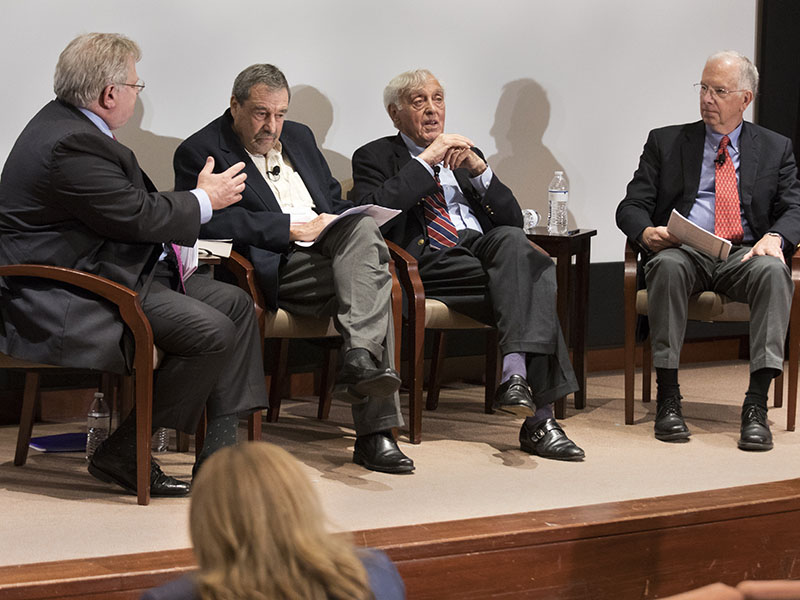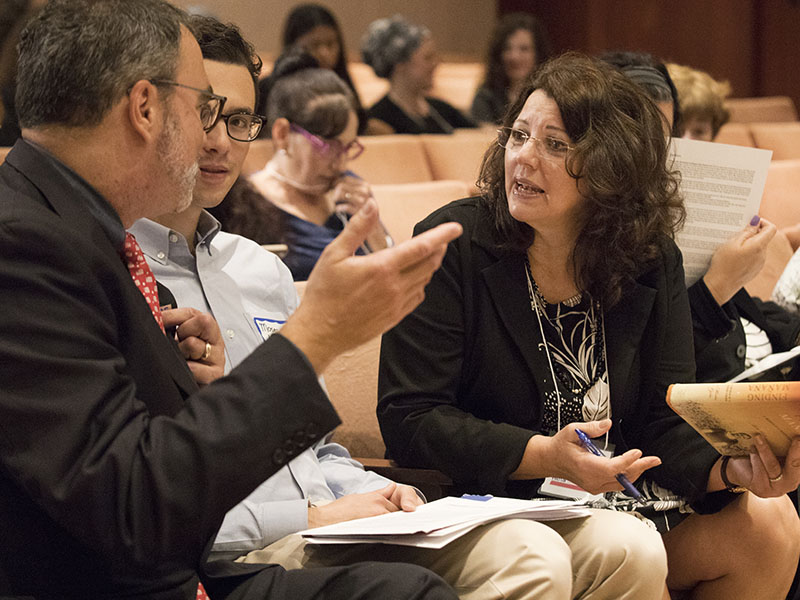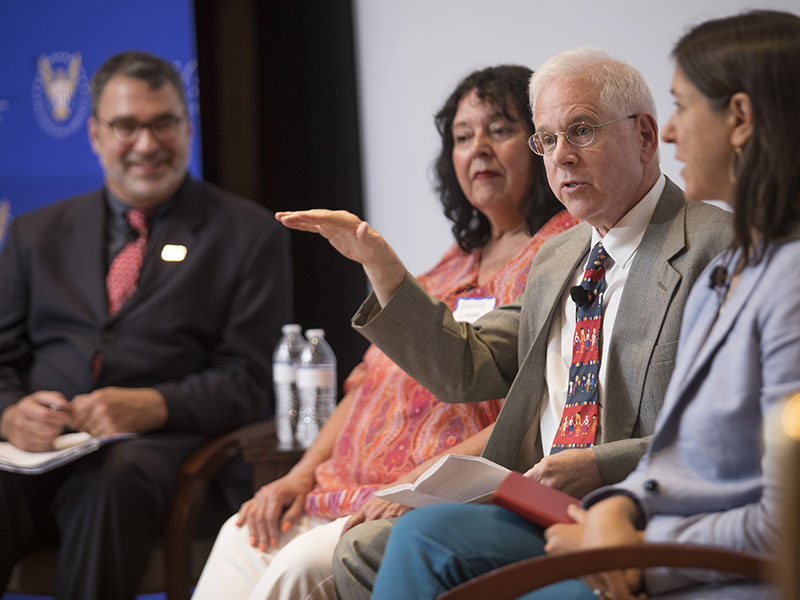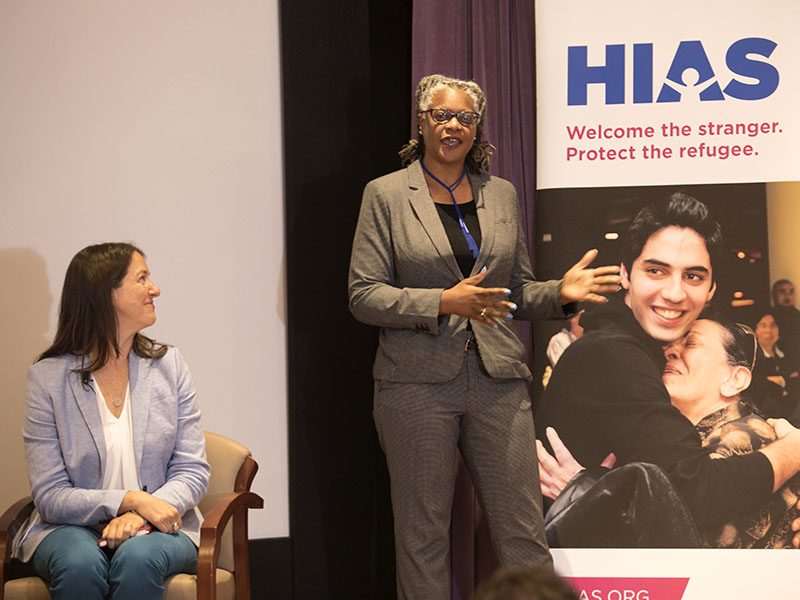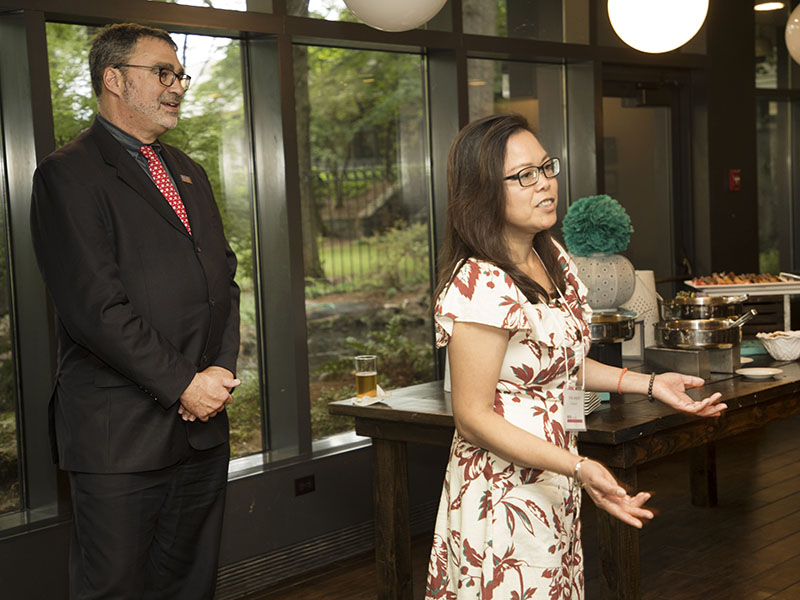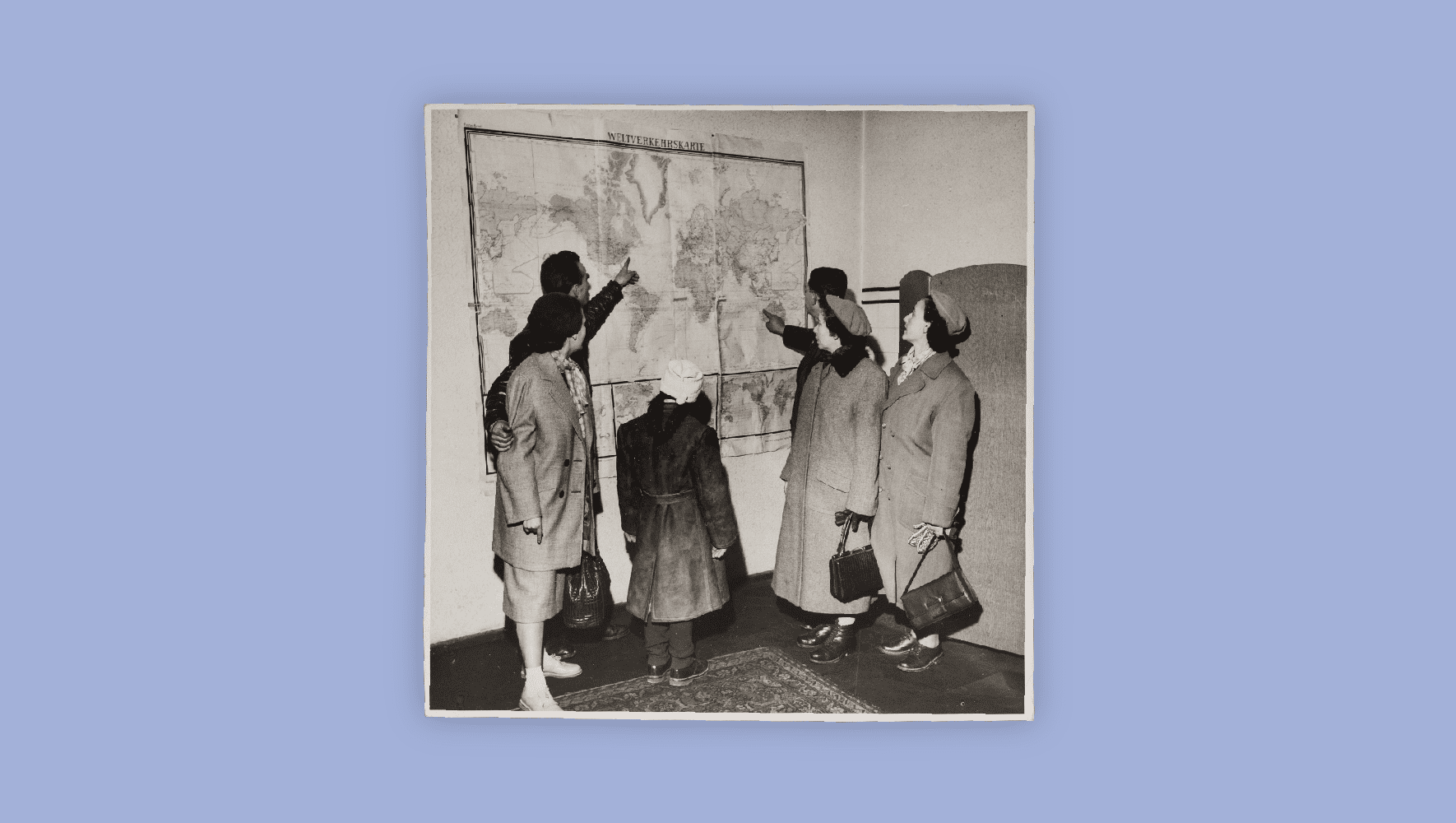Commemorating the Refugee Act of 1980 at the Carter Center
By Jasmine Sanders, HIAS
Jun 17, 2019
The Refugee Act of 1980, which codified refugee rights under United States law, established the US Refugee Resettlement Program and set the tone for the country’s refugee policy for the next four decades, should be considered a signature achievement of the Carter Administration. The act was adopted unanimously by the Senate, by an overwhelming bipartisan majority in the House, and signed by President Jimmy Carter on March 17, 1980.
On June 12, a distinguished group of former government officials, refugee rights leaders, and supporters of refugee protection gathered at the Jimmy Carter Presidential Library & Museum in Atlanta for a celebration of the Refugee Act of 1980. Although President Carter was unable to attend due to a recent injury, his presence was felt throughout the day. C-Span was there to record the event: watch The Refugee Act of 1980 panel here, and Origins of the Refugee Act of 1980 panel here, and Implementation of the Refugee Act of 1980 here.
The conference was a jam-packed day full of information, laughter, and even some tears. Dr. Meredith Evans, Director of the Carter Library & Museum, welcomed guests and introduced Ambassador Mary Ann Peters, CEO of the Carter Center, who provided a robust history of President & Mrs. Rosalyn Carter’s work with refugees. Mirta Ojito, Pulitzer-Prize winning journalist, spoke about her family’s experience fleeing Cuba during the 1980 Mariel boatlift, telling the group, “if it weren’t for President Carter, I wouldn’t be here…my family wouldn’t be here…and that’s why I wish he was here today.”
Elizabeth Holtzman, a former Congresswoman (D-NY) and co-author of the Refugee Act of 1980, lamented that today the U.S. lacks the leadership the world needs to address today’s refugee crisis and emphasized the need for leadership like that of President Carter to confront this pressing issue. Kelly Clements, UNHCR Deputy High Commissioner for Refugees, shared that there are now more than 70 million forcibly displaced persons in the world with a significant jump in just the past few years, sobering facts which set the tone for the rest of the day.
The first panel discussion of the day included Maunica Sthanki, former Counsel for the House Judiciary Committee, Subcommittee on Immigration & Border Security; Arthur P. “Skip” Endres, former Counsel for the House Immigration Committee, Subcommittee on Immigration, Refugees and International Law; and James Purcell, former Director General, International Organization for Migration speaking about the legislative and policy acts leading up to the Refugee Act of 1980. This was followed by Eric Schwartz, former Assistant Secretary of State for Population, Migration, and Refugees; Prof. David Martin, former State Department, INS and DHS official; Amb. Frank Loy, former Director of the Bureau of Refugee Programs; and Lionel Rosenblatt, who was the Refugee Coordinator in Southeast Asia throughout the Carter Administration, discussing the implementation of the Refugee Act of 1980.
The third and final panel looked at the significance of the Refugee Act of 1980 today. HIAS President & CEO Mark Hetfield moderated the discussion between Lavinia Limon, former Executive Director, U.S. Committee for Refugees and Immigrants, and former Director U.S. Office of Refugee Resettlement; Dr. Andrew Schoenholtz, Director, Center for Applied Legal Studies, Georgetown University Law Center; and Shana Tabak, Executive Director, Tahirih Justice Center, Atlanta, who noted how Americans have always been reticent toward refugees being resettled in the United States and also touched on widespread lack of awareness around the subject of asylum.
Mark Hetfield of HIAS reflected that President Carter not only established the legal framework for refugee resettlement and asylum in the United States, but under his leadership we - the people of the United States of America - welcomed 207,116 resettled refugees and 124,000 Mariel Cubans, - the most in any single year in U.S. history. “This was true leadership,” Hetfield said, “the type which is needed today for the world to address the largest forced displacement crisis in history.”
The group also heard from Amb. Stuart Eizenstat, President Carter’s Chief Domestic Policy Adviser from 1977-1981, who was unable to attend the event, but had reminisced about the Refugee Act in a video interview recorded with Mark Hetfield just days earlier. Reflecting on the passage of the Act amidst a difficult political environment, Eizenstat said: “It really shows how much we’ve lost in today’s world with the bitter partisanship…this was a humanitarian crisis which Republicans and Democrats agreed on and even in the midst of what was an extremely bitter primary campaign…we were still able to cooperate because the problem was so massive and so important.”
Former Vice President Walter Mondale also sent a video greeting to those assembled in which he read the text of a 1979 speech he delivered to a United Nations Conference on Indochinese Refugees in Geneva, Switzerland, concluding with “Let us reach beyond metaphor. Let us honor the moral principles we inherit. Let us do something meaningful — something profound — to stem the misery. We face a world problem. Let us fashion a world solution.”
After questions from the audience, guests attended a reception and heard from two speakers with unique connections to the refugee world. Mayor Ted Terry of Clarkston, Georgia, known to some as the “Ellis Island of the South,” spoke about his run for mayor and connecting with a diverse array of constituents. Award-winning Chef Seng Luangrath, shared the story of her family’s journey to the U.S. as refugees from Laos and discovering her passion for cooking in a refugee camp in Thailand.
